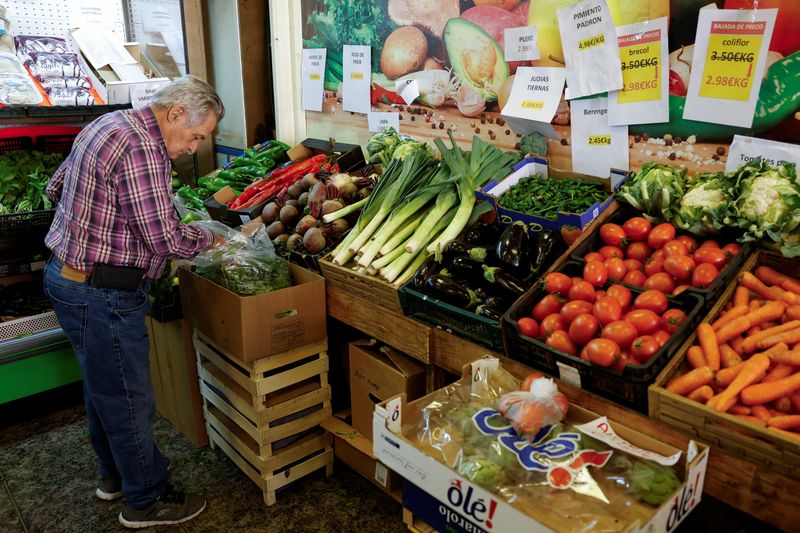MADRID (Reuters) - Spain's government passed an inflation relief package worth nearly 3 billion euros ($3.21 billion) on Tuesday, including measures such as a lower income tax for minimum wage workers and an extension of zero value-added tax on basic food items.
The income tax cut will cost the treasury 1.4 billion euros and the 0% VAT extension 1.36 billion euros, Budget Minister Maria Jesus Montero told a news conference.
Spain will progressively return to the prior VAT on essential foods of 4% by next year, starting with a rise to 2% after Sept. 30.
Zero VAT on food staples was one of the measures introduced in December 2022 to head off a cost-of-living crisis exacerbated by a surge in energy prices triggered by the war in Ukraine.
Spanish inflation had peaked at 10.8% in July 2022. Last month, the 12-month EU-harmonised inflation rate stood at 3.8%.
The government last week added olive oil to the list of essential foods, which also include bread, milk, fruits and vegetables.
The package extends subsidies for vulnerable groups struggling to pay their electricity bills. In previous packages, electricity taxes were lowered, but the government has been progressively hiking them throughout the second quarter.
The cabinet also approved 626 million euros in new subsidies for the purchase of electric vehicles and an extension of aid for energy-intensive companies.
Spain avoided entering the EU's excessive deficit procedure by aiming to reduce its deficit to 3% by 2024.

This plan is being helped by higher-than-expected economic growth, projected at 2.5% this year after the economy beat forecasts and expanded by 0.8% in the first quarter.
($1 = 0.9337 euros)